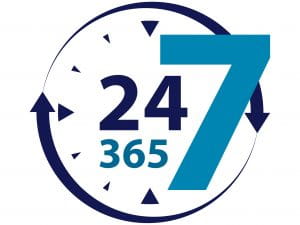- Home
- Blogs
- Employment Talk
Absenteeism, presenteeism, leavism – are these isms part of your culture?
Browse this blog post
As the employment team launch the Culture Campaign, and as part of Stress Awareness Month, a news story about workplace mental health issues caught my attention. The story highlighted the rise in employees across the board suffering from mental health issues as a result of expectations (actual or perceived) placed on them to be available 24/7. We’ve all heard of “absenteeism” but what about “presenteeism” and “leavism”? Presenteeism is where employees feel compelled to go to work even when they are unwell or injured. Leavism occurs where employees continue to work whist on holiday or other leave, a phenomenon that has become more and more prevalent in recent years as technology allows us to be connected wherever we are in the world, whatever the time.
 Of course, long hours and tight deadlines are sometimes unavoidable but in a world where it can seem impossible to fully switch off, it is more important than ever that we take a break from time to time, and that we encourage our colleagues to do likewise. The culture is shifting in this area as it is noticeable that employers are now paying particular attention to employee mental health issues, impressing upon their workers the importance of taking time off to recover from illness, and that a holiday should mean just that. This is not a soft issue. Statistics from the Mental Health Foundation’s 2018 study found that 74% of people have felt so stressed they have been overwhelmed or unable to cope.
Of course, long hours and tight deadlines are sometimes unavoidable but in a world where it can seem impossible to fully switch off, it is more important than ever that we take a break from time to time, and that we encourage our colleagues to do likewise. The culture is shifting in this area as it is noticeable that employers are now paying particular attention to employee mental health issues, impressing upon their workers the importance of taking time off to recover from illness, and that a holiday should mean just that. This is not a soft issue. Statistics from the Mental Health Foundation’s 2018 study found that 74% of people have felt so stressed they have been overwhelmed or unable to cope.
For employers the choice is simple. Work hard, play hard. If the mantra of an organisation is work hard, play not so hard, employees miss out on much needed rest and recuperation, with the inevitable consequences of poor performance or worse – burn out. It´s a lose-lose outcome.